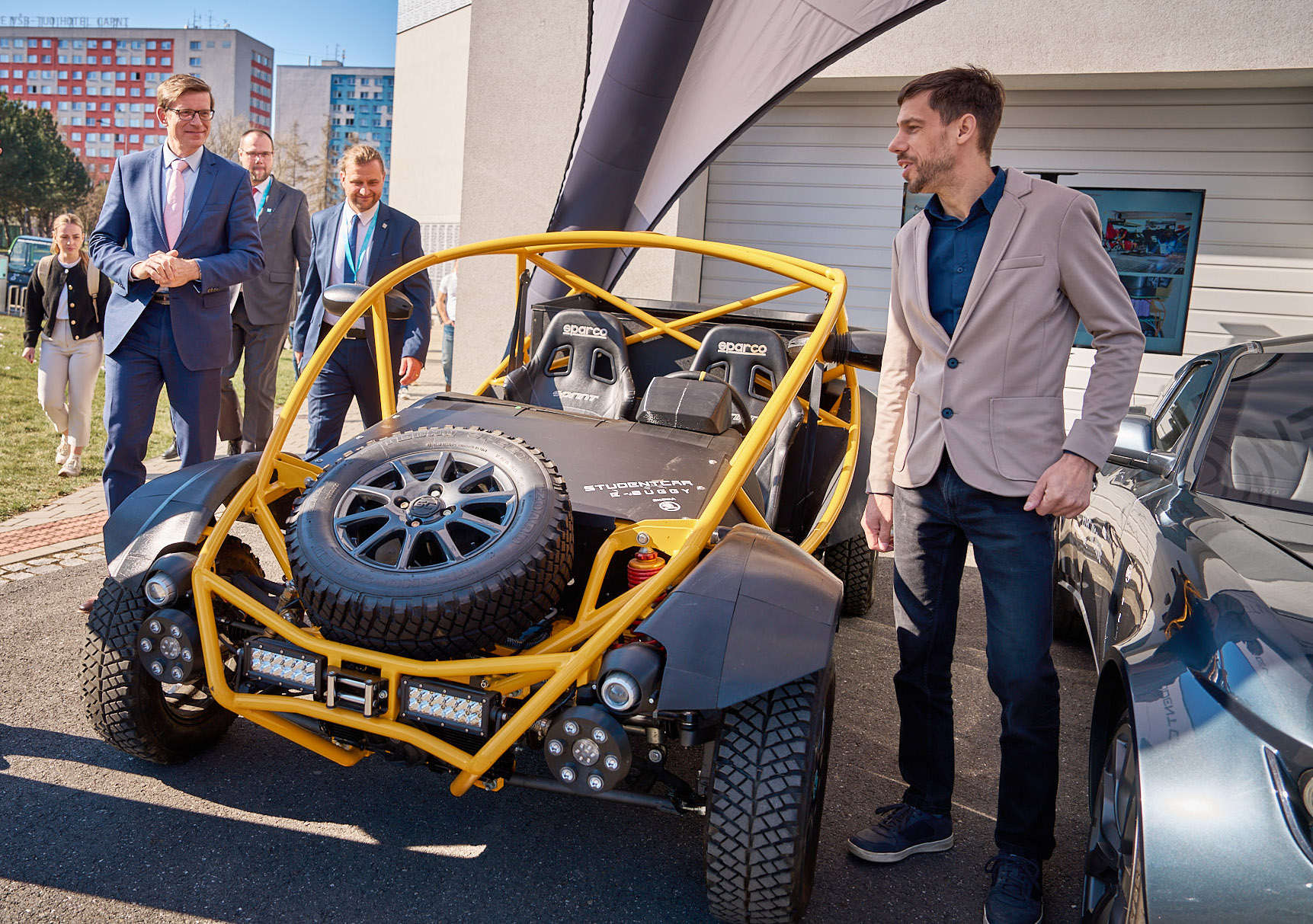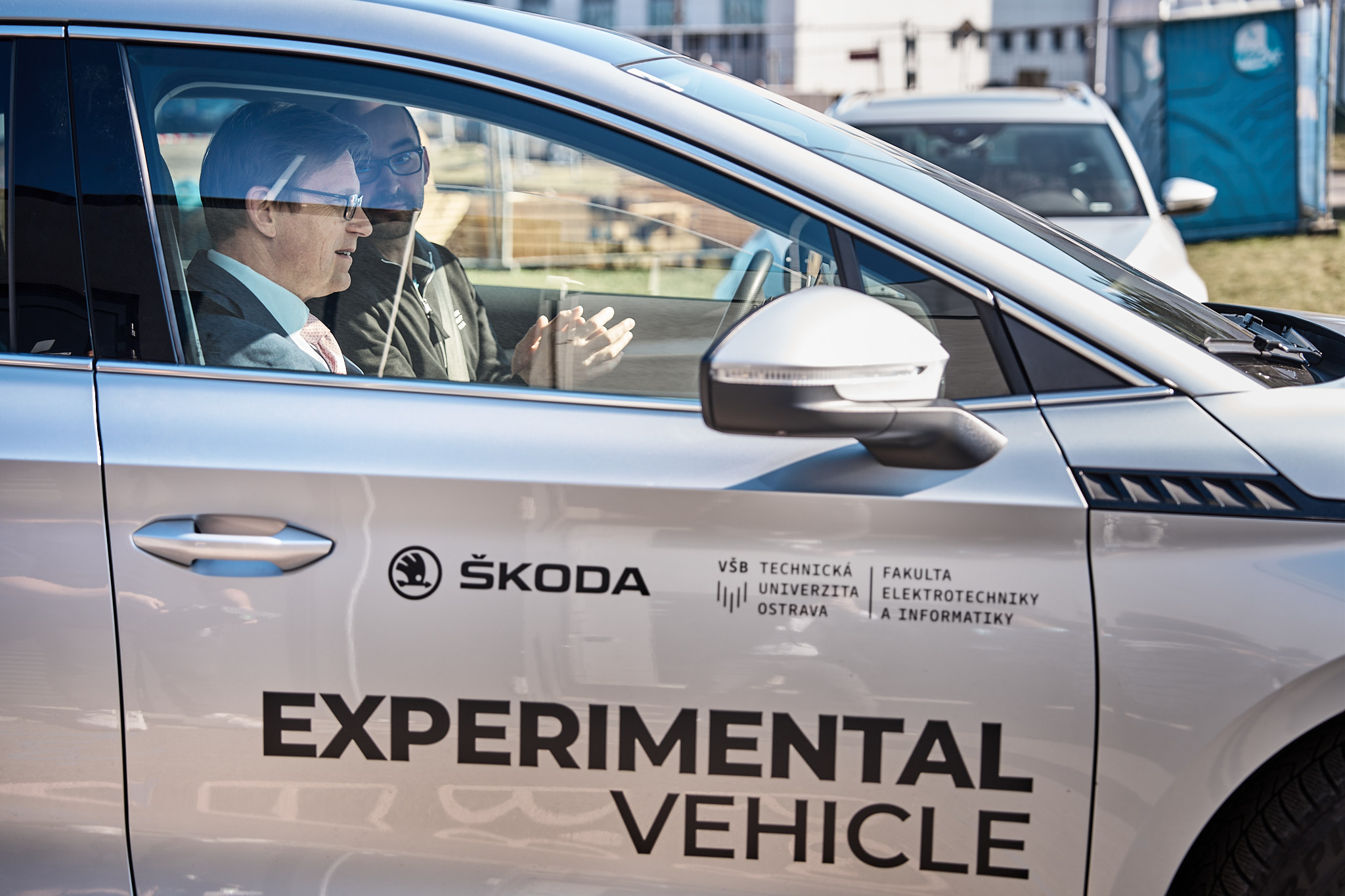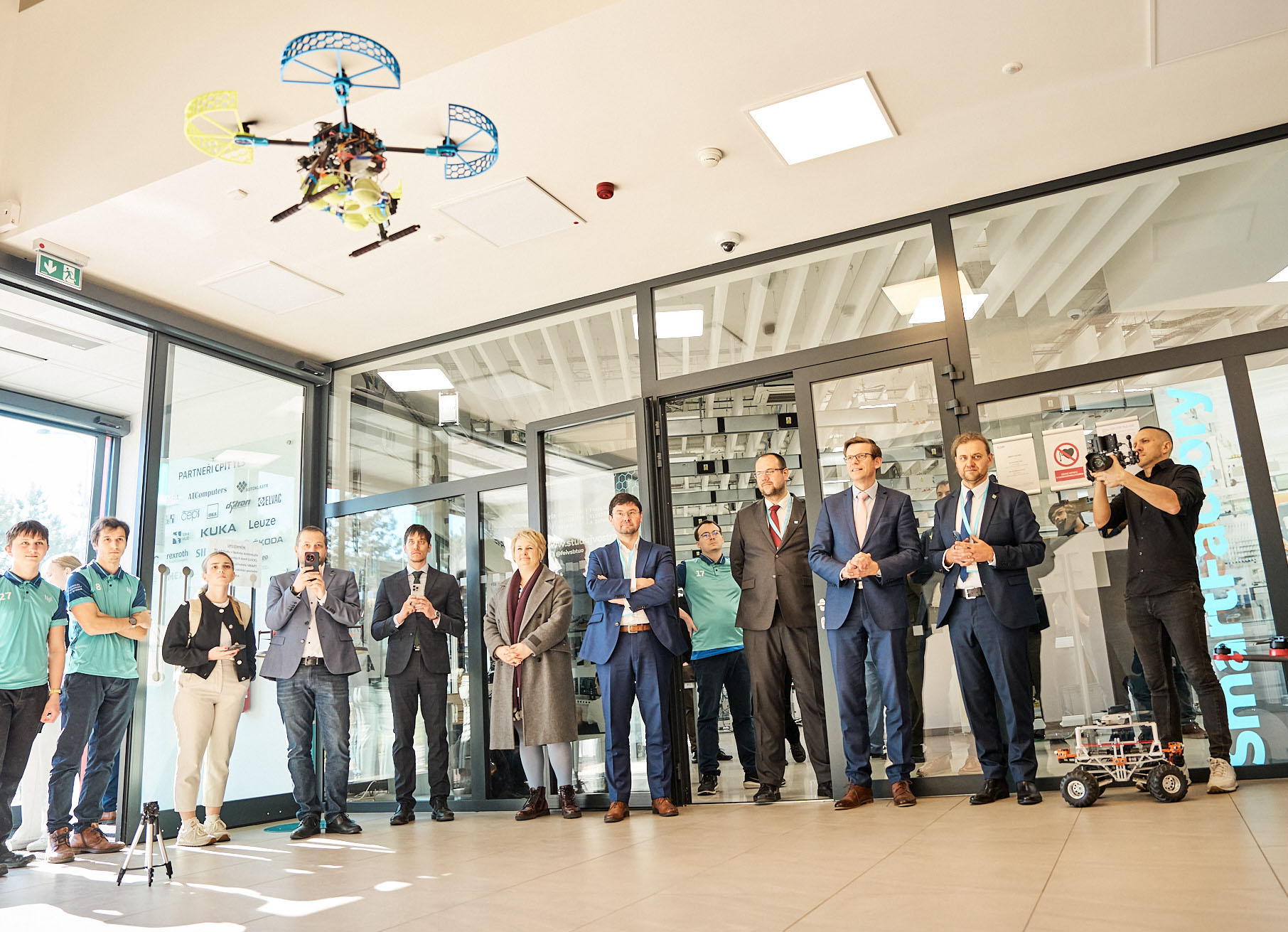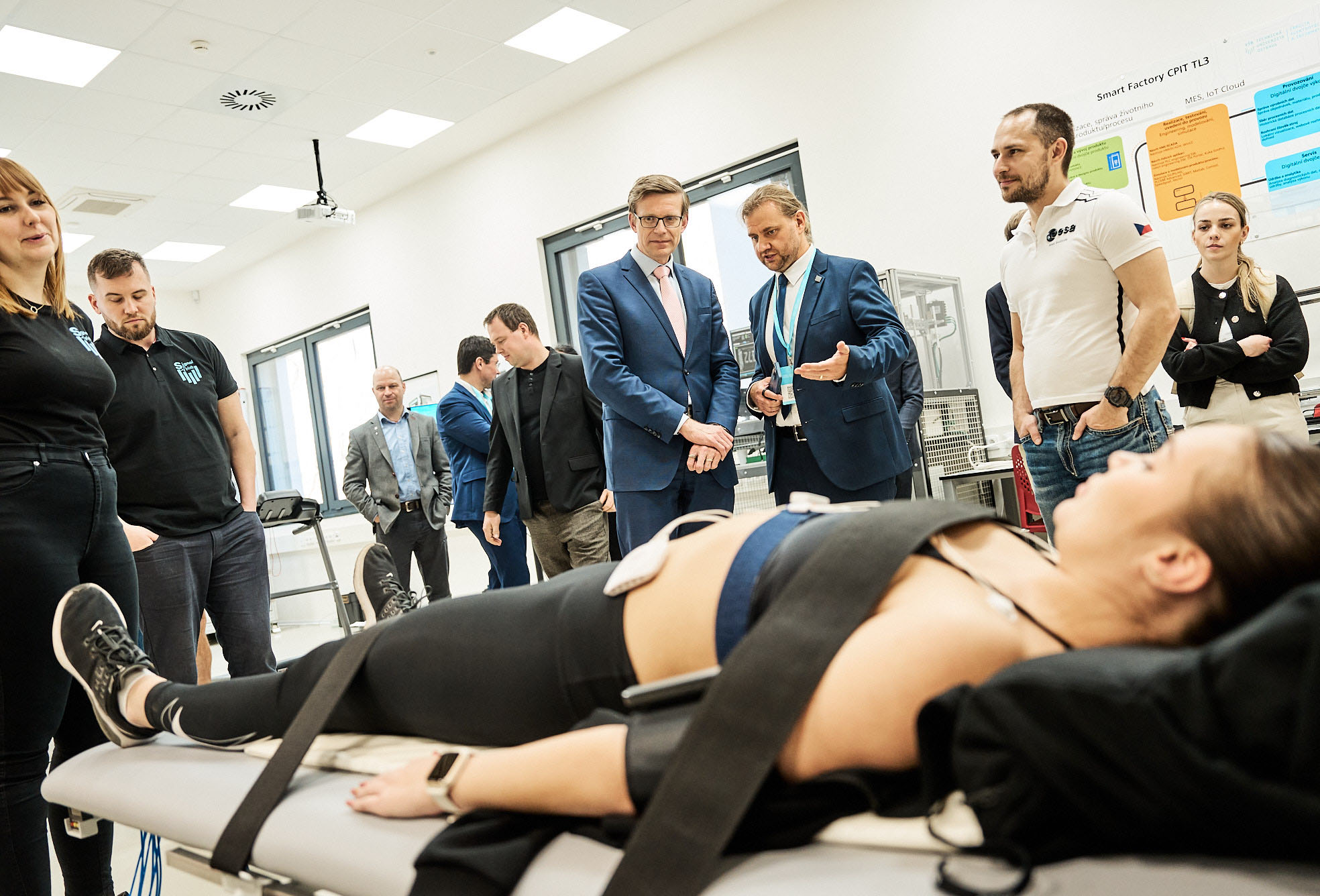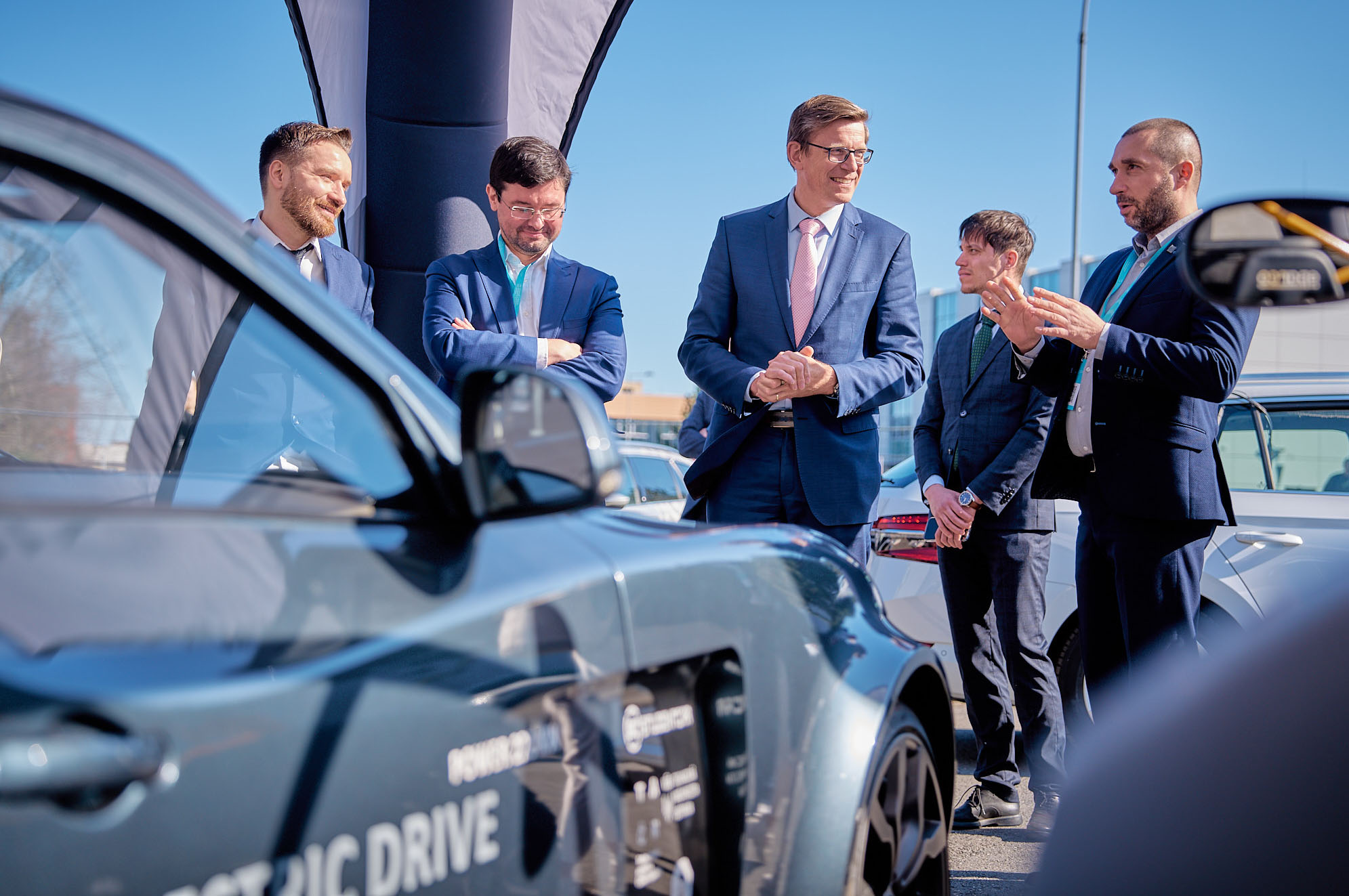Minister of Transport at VSB-TUO to learn about developments in the field of autonomous mobility and space technology research
During the visit, the developments carried out within the Mobility Lab were presented, focusing on
autonomous transportation systems, and the Signal Lab's research on advanced signal processing and artificial intelligence methods with applications in transport and space technologies.
A delegation from the Ministry of Transport visited the CPIT TL3 testbed, which is part of the Faculty of Electrical Engineering and Computer Science (FEECS) and provides state-of-the-art facilities for the development and testing of advanced technologies.
In the Mobility Lab, where national and international application projects are being carried out focusing on connected, cooperative and autonomous mobility, guests were introduced to new
applications for intelligent transport systems (C-ITS) and autonomous mobility (CCAM), drive-by-wire technologies, evolutionary sensor systems, new Software Defined Vehicle (SDV) concepts, and more. "In the Mobility Lab, the we focus on developing and testing technologies that accelerate research and development European autonomous and connected mobility. We work with industry partners and public institutions on projects that have direct application in practice. Our goals range from safer and more efficient traffic management to fully autonomous systems," said the FEECS´s Vice Dean for Industry Cooperation and Head of Mobility Lab Petr Šimoník.
VSB-TUO is actively involved in the preparation of experiments and projects of innovative space
technologies. Therefore, the key activities of Signal Lab and Nanorobots Lab, which under the leadership of Professor Martin Pumera focuses on research and development of nanorobot technologies.
"We have a long-standing interest in monitoring vital functions in extreme conditions such as
and advanced biological signal processing. We are conducting several experiments focused on space research, including the simulation of the effects of microgravity on the human body as part of the IKAROS - Innovation in Cardiorespiratory Observation for Space. We have also presented project ISS T-Shirt and CONREX - Czech Orbital NanoRobots Experiment," said Radek Martinek, University coordinator for space research and Vice Dean for science and research at FEECS.
The Minister of Transport also discussed with experts the possibilities of cooperation between academia, industry and government and praised the university's involvement in space research and autonomous mobility.
"The field of autonomous mobility, intelligent transport systems and their interconnection with artificial intelligence or space technologies currently provides a huge scope for research and innovation. Therefore, it is important to involve students in their studies in projects with this focus to inspire their interest in these fields. Cooperation between academia and industry, in which VŠB-TUO plays a significant role, is also key for their future employment," said Martin Kupka.
The programme ended with a discussion between the Minister of Transport Martin Kupka and students who were interested in the future development of autonomous mobility, legislative challenges related to the deployment of new technologies or the possibility of involving young engineers in research and innovation in this field.
